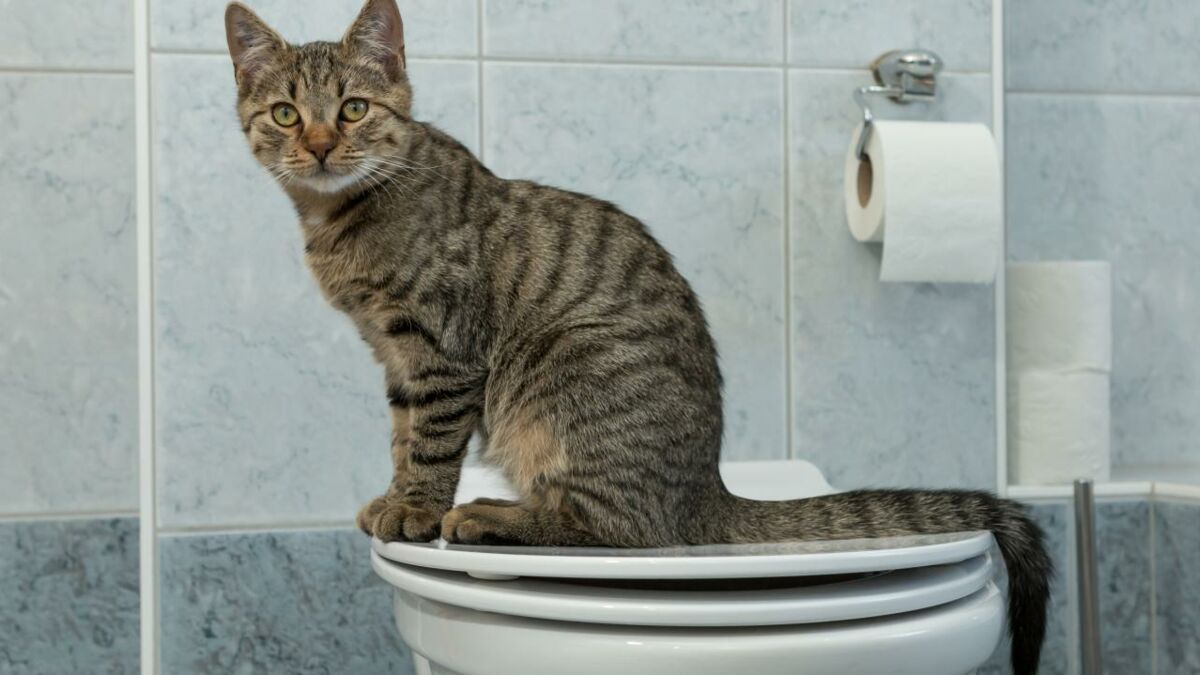Reasons Flushing Cat Poop Down Your Toilet Isn't a Good Idea - Tips for Proper Disposal
Reasons Flushing Cat Poop Down Your Toilet Isn't a Good Idea - Tips for Proper Disposal
Blog Article
Just about every person will have their unique assumption in relation to How to Dispose of Cat Poop and Litter Without Plastic Bags.

Introduction
As cat proprietors, it's vital to be mindful of exactly how we dispose of our feline pals' waste. While it might appear hassle-free to flush cat poop down the bathroom, this technique can have detrimental consequences for both the atmosphere and human health and wellness.
Alternatives to Flushing
The good news is, there are safer and much more responsible methods to take care of cat poop. Think about the complying with choices:
1. Scoop and Dispose in Trash
One of the most common technique of disposing of feline poop is to scoop it into a naturally degradable bag and throw it in the trash. Be sure to make use of a dedicated trash scoop and throw away the waste without delay.
2. Usage Biodegradable Litter
Opt for biodegradable cat litter made from materials such as corn or wheat. These litters are environmentally friendly and can be safely dealt with in the trash.
3. Hide in the Yard
If you have a yard, think about burying cat waste in a marked location away from vegetable gardens and water resources. Make certain to dig deep adequate to stop contamination of groundwater.
4. Install a Pet Waste Disposal System
Invest in a pet dog garbage disposal system specifically developed for feline waste. These systems use enzymes to break down the waste, reducing odor and ecological impact.
Health Risks
Along with ecological issues, purging pet cat waste can also pose health and wellness threats to humans. Cat feces might consist of Toxoplasma gondii, a parasite that can create toxoplasmosis-- a potentially severe disease, particularly for pregnant women and people with damaged body immune systems.
Ecological Impact
Flushing pet cat poop presents harmful microorganisms and bloodsuckers into the water supply, presenting a considerable threat to aquatic environments. These impurities can adversely affect marine life and concession water high quality.
Final thought
Liable pet dog possession extends past providing food and shelter-- it additionally involves appropriate waste monitoring. By avoiding flushing cat poop down the commode and going with alternative disposal approaches, we can lessen our environmental footprint and safeguard human health and wellness.
Why Can’t I Flush Cat Poop?
It Spreads a Parasite
Cats are frequently infected with a parasite called toxoplasma gondii. The parasite causes an infection called toxoplasmosis. It is usually harmless to cats. The parasite only uses cat poop as a host for its eggs. Otherwise, the cat’s immune system usually keeps the infection at low enough levels to maintain its own health. But it does not stop the develop of eggs. These eggs are tiny and surprisingly tough. They may survive for a year before they begin to grow. But that’s the problem.
Our wastewater system is not designed to deal with toxoplasmosis eggs. Instead, most eggs will flush from your toilet into sewers and wastewater management plants. After the sewage is treated for many other harmful things in it, it is typically released into local rivers, lakes, or oceans. Here, the toxoplasmosis eggs can find new hosts, including starfish, crabs, otters, and many other wildlife. For many, this is a significant risk to their health. Toxoplasmosis can also end up infecting water sources that are important for agriculture, which means our deer, pigs, and sheep can get infected too.
Is There Risk to Humans?
There can be a risk to human life from flushing cat poop down the toilet. If you do so, the parasites from your cat’s poop can end up in shellfish, game animals, or livestock. If this meat is then served raw or undercooked, the people who eat it can get sick.
In fact, according to the CDC, 40 million people in the United States are infected with toxoplasma gondii. They get it from exposure to infected seafood, or from some kind of cat poop contamination, like drinking from a stream that is contaminated or touching anything that has come into contact with cat poop. That includes just cleaning a cat litter box.
Most people who get infected with these parasites will not develop any symptoms. However, for pregnant women or for those with compromised immune systems, the parasite can cause severe health problems.
How to Handle Cat Poop
The best way to handle cat poop is actually to clean the box more often. The eggs that the parasite sheds will not become active until one to five days after the cat poops. That means that if you clean daily, you’re much less likely to come into direct contact with infectious eggs.
That said, always dispose of cat poop in the garbage and not down the toilet. Wash your hands before and after you clean the litter box, and bring the bag of poop right outside to your garbage bins.
https://trenchlesssolutionsusa.com/why-cant-i-flush-cat-poop/

I am very occupied with Don’t flush cat feces down the toilet and I'm hoping you liked the entire post. Are you aware of somebody who is sincerely interested in the topic? Take a moment to promote it. I treasure reading our article about Can You Flush Cat Poop Down The Toilet?.
Book An Appointment Report this page